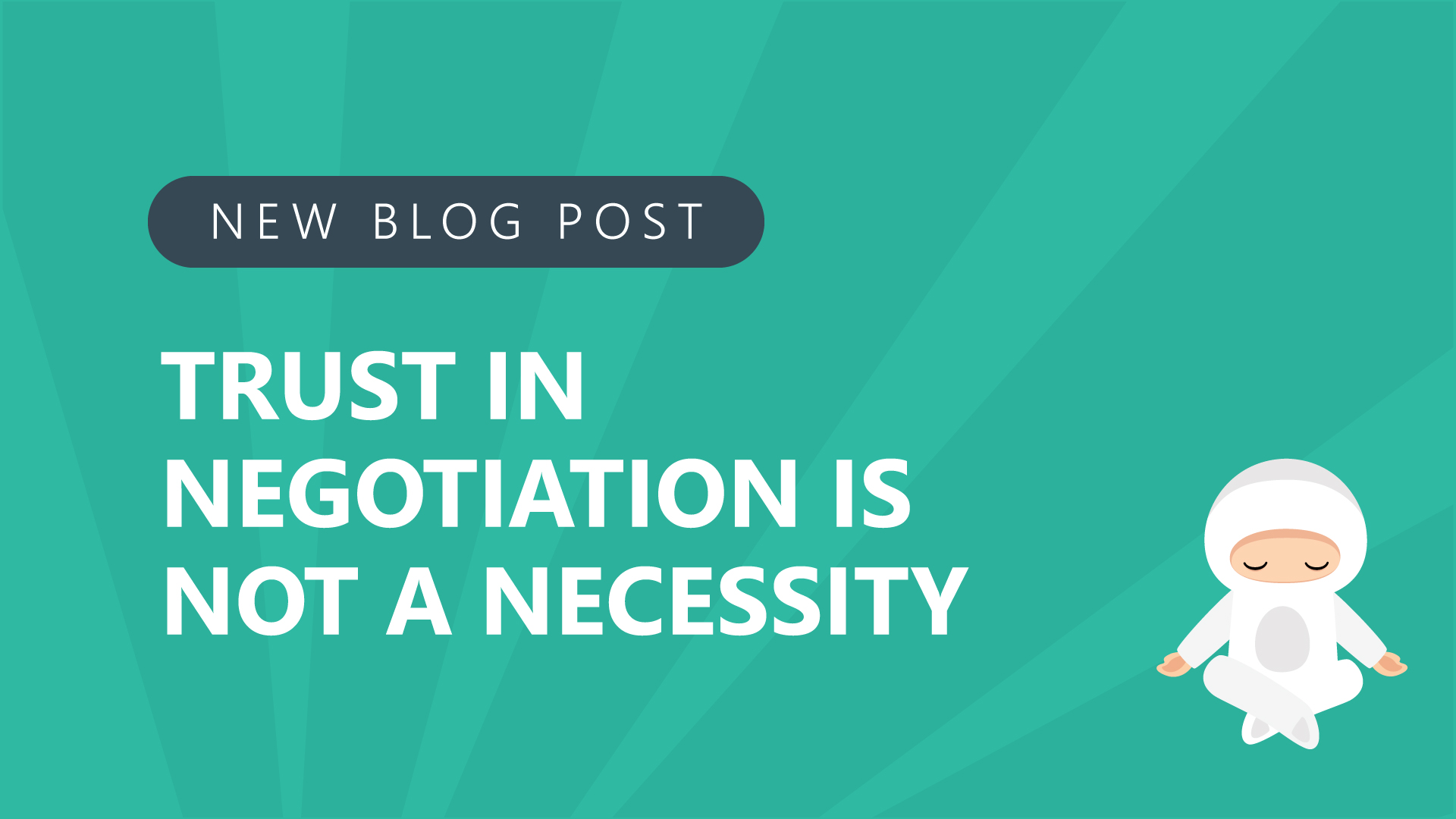Everyone has heard some version of the phrase, “We only do business with people we know and trust.” Many negotiators believe that trust is the thread that holds negotiations together. Allan Tsang and Dan Oblinger believe that is a lie. Trust is a luxury.
Is it trust—or rapport?
Trust is fragile. No one trusts anyone when they just meet them. You may have a gut feeling. You may like or dislike them. But it’s impossible to trust someone you’ve just met. That’s why trust in negotiations isn’t required. If it was, what would the point of contracts be?
People use the word “trust” when they should be using “rapport.”
Dan is a crisis and hostage negotiator. One of their rules, whenever possible, is that they do not negotiate face-to-face with armed suspects. They’ll start communicating by phone. Why? They don’t trust the person they’re negotiating with. If Dan is forced to negotiate face-to-face, he’ll be wearing a helmet, a bulletproof vest, and definitely be carrying a weapon.
Does that signal trust? No. Does that build rapport? Definitely not.
Build trust by creating a feeling of safety
Rapport is a better word than trust. But Dan believes focusing on “safety” is even better. As a crisis negotiator, his goal is to create a sense of safety for someone to surrender. Dan will never trust someone he negotiates with. There are even complex systems in place to protect the primary negotiator from developing trust. Trust could harm the other victims, hostages, or other officers on the scene. Why? Because people make bad decisions when they trust someone too much. Hostage negotiators put emphasis on trust, but in practice, good negotiators don’t trust. In practice, they come to stronger agreements without it because they build a sense of safety.
Trust is a luxury
Many procurement teams I’ve worked with have had deals in place for 15+ years. They trust the vendor they’ve been working with. Then we run the analytics and find they’ve been getting hosed every year. Some are overpaying by 300%. They think that trust is something that you control. But trust is entirely out of your control.
Famous negotiator trainers and speakers talk about how collaboration drives behavior. But Dan shares that “Trust is a decision that somebody else makes about us and it is based upon our behavior … We get to make that same decision about them.” If someone makes a different decision, there will be problems in that business relationship.
Dan points out that he and Allan both work with clients where they don’t require a deposit. It’s because they are long-time clients that have demonstrated trustworthiness. When they call Dan with an emergency, he’ll dive in.
Allan has a client who just sends him an email letting him know he’s acquired a new company, and he wants Allan to coach the CEO. Allan doesn’t send an invoice or a contract; he just bills them. But that would never happen with a new client. Why? Because trust builds over time as you deliver on your promises.
A lack of trust is our business
Consultants get called in when a client’s counterparty is dealing with broken trust, but they still want to do business together. Consultants go in and help them. There’s no trust, but there’s still business. Allan emphasizes that it is the entire business. The entire profession debunks the myth that you only do business with people you know, like, and trust.
If trust is a luxury, what do you look for? Look for competence, credibility, skill, reliability, and consistency in delivery. If you do that, you’ll be safer than relying on trust. Dan and Allan cover two other widely held beliefs in episode #279 of the Negotiations Ninja podcast.

